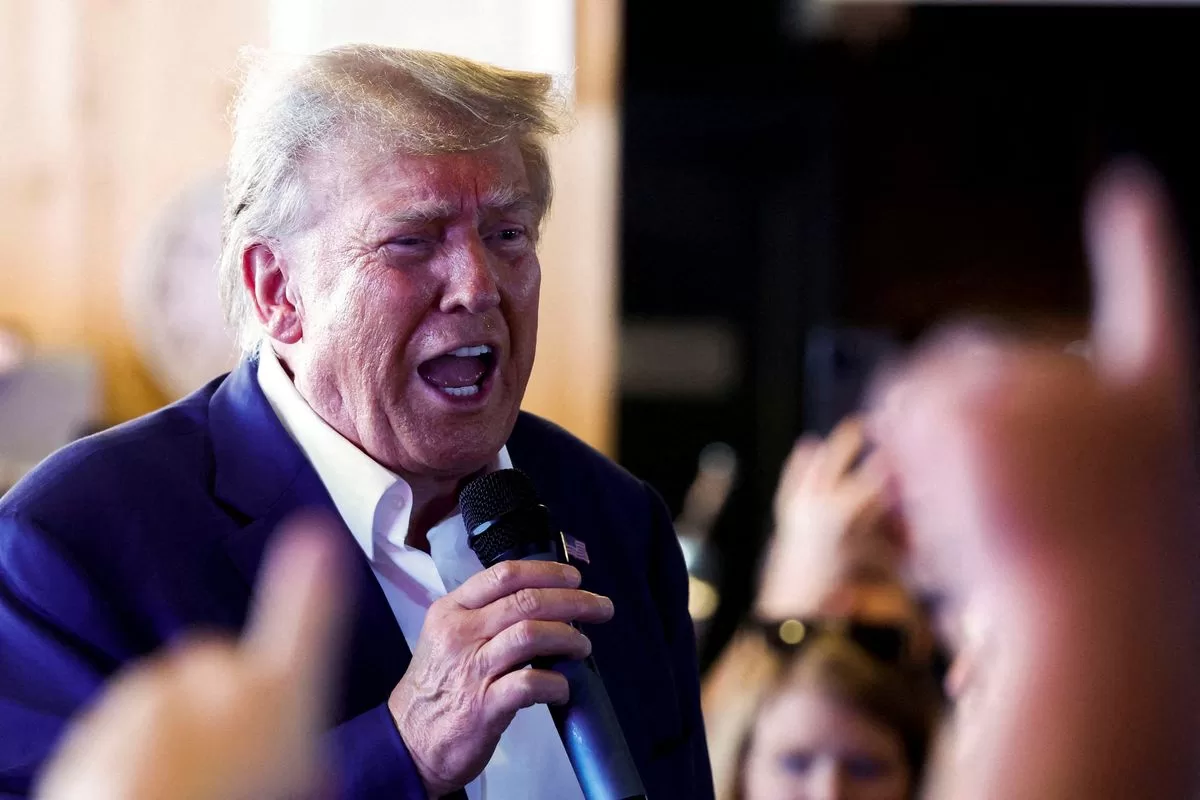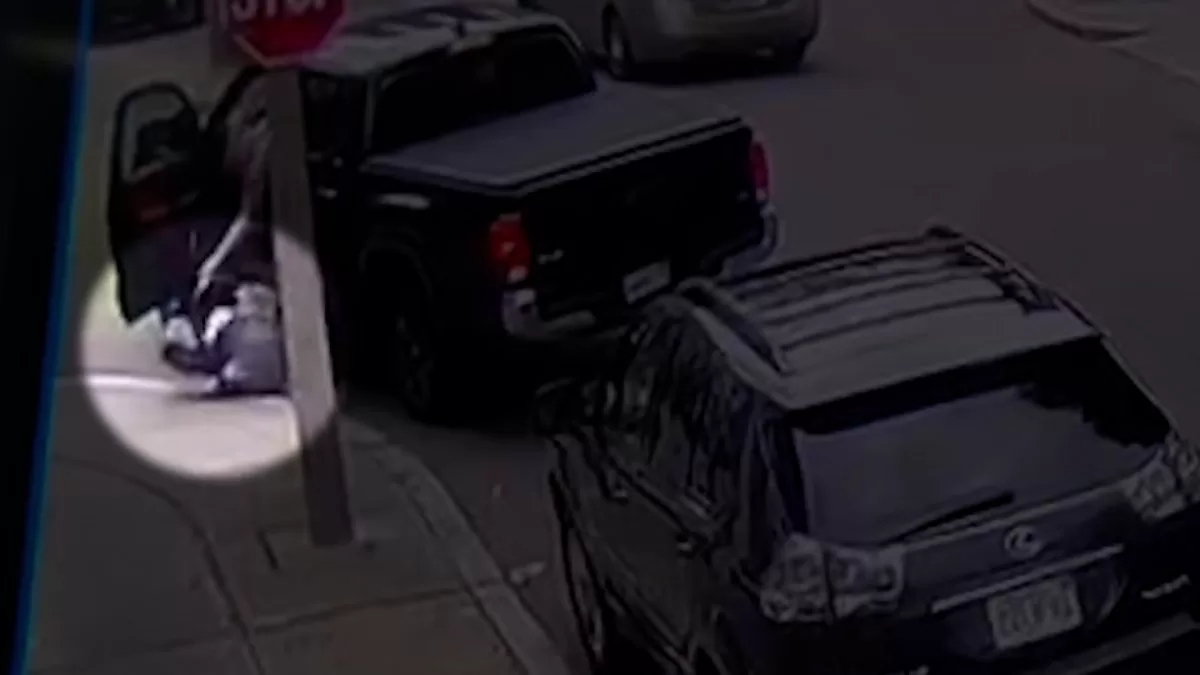Four times in four months. Former US President Donald Trump appears about to be indicted again this week. This time, in southern Georgia. A grand jury took a statement from at least two witnesses on Monday and Tuesday in the investigation led by prosecutor Fani Williams into possible interference to alter the electoral result of that state. It is expected that immediately after these testimonies, the grand jury will give the green light to the formal accusation against the former president. The case will be added to the rest of the accusations to complicate what is already promised as an electoral campaign dominated by the ex-president’s judicial problems.
Trump himself, always eager to offer scoops on himself, took his fourth indictment for granted. “I understand through illegal leaks to fake news outlets that Fulton County District Attorney Fani Willis desperately wants to indict me on the ridiculous charge of rigging the 2020 election. No, I did not rig that election!” , he wrote on his social network, Truth.
A charge sheet that the Fulton County court posted briefly on its website and withdrew almost immediately, but was seen by Reuters, named the former president as a defendant and cited among the charges violation of state anti-blackmail law, conspiracy to making false statements, conspiring to forge documents, and soliciting a public official to violate the oath of office. It is unknown why the document, which Williams has called “inaccurate”, was published and deleted, according to the news agency.
If the accusation is confirmed, the case will be added to the three already dragged by the former tenant of the White House and current Republican candidate to return to the presidency. The first indictment came in March, when the Manhattan prosecutor accused him of accounting falsification in connection with payments to buy the silence of a porn actress about her alleged sexual relationship. In June the second came: special counsel Jack Smith accused him of violating the espionage law by keeping classified documents from his presidential term without permission at his private residence in Florida, Mar-a-Lago. On the 2nd, Smith once again filed charges against him, this time in the most serious case to date: the alleged interference by the president in attempts to alter the 2020 election results.
Williams is expected to bring charges related to the case also against a dozen Trump aides, possibly including the former president’s personal lawyer Rudy Giuliani. The former mayor of New York recently admitted that he had lied about the practices of two election officials when claiming there was fraud.
Join EL PAÍS to follow all the news and read without limits.
subscribe
The Georgia case links to that of the federal special prosecutor, but is limited to attempts to change the results at the polls in that state. Specifically, in Fulton County. Voters supported the Democratic candidate, Joe Biden – the winner of those US elections – in November 2020, although only by a slim majority of less than 12,000 votes. In a recorded phone call, Trump spoke with the Georgia Secretary of State, fellow Republican Brad Raffensperger, on January 2, 2021, to urge him to reverse the result. “I just want to find 11,780 votes”, one more than those harvested by Biden, Trump is heard asking in the audio.
“Incorrect data”
In the conversation, the then outgoing president —he had 18 days left in the White House— pleads, flatters, insists and warns Raffensperger, always with the argument he has maintained since his electoral defeat: that he was the real winner and the official data they are the fruit of an immense tongo. The official did not agree. Biden’s victory had been legitimate. “The data that you handle is incorrect,” Raffensperger replies to Trump in that talk.
The now presidential candidate maintains that he only made “a perfect protest call” when phoning the official, as he declared on Monday on Truth, his social network. The tycoon once again encourages the argument that has been taking shape as he has received accusations after accusations and that has become the basis of his electoral strategy: that all his judicial problems are part of a conspiracy of Democratic politicians and related media to prevent him from returning to the White House and becoming a champion of ordinary Republicans. “Why wasn’t this case filed two and a half years ago? Electoral interference! ”, he protests.
In addition to the phone call to Raffensperger, Willis has also investigated illegal computer access to electronic voting machine systems in a rural Georgia county and a plot to use fake voters in an attempt to capture votes from that swing state, which at that time was emerging as a determinant for the national result of the elections as well as for defeating Biden.
reject false conspiracies
The two witnesses who have publicly confirmed that they had been called to testify are the journalist George Chidi and the former Lieutenant Governor of Georgia, Geoff Duncan. The former senior official, like the rest of the state’s senior hierarchy, has been very adamant in rejecting Trump’s false conspiracy theories about the results of the 2020 elections. A position supported by his voters in a state that was once Republican of pure strain and that in the last 15 years has been oscillating to more democratic positions. Governor Brian Kemp, one of the Republicans who has been most vocal in ruling out the existence of fraud, was re-elected by a comfortable majority in the midterm elections in November last year.
Although at first glance the case seems more limited than, for example, the one presented by Smith around the great electoral hoax of 2020, an indictment in Georgia could lead to additional legal complications for the former president.
Trump has hinted that, if he became president again, he would proclaim a self-pardon to close his cases. Or he could name a like-minded person at the head of the Justice Department to shelve the federal indictments. But in the Georgia case, being a state case, he couldn’t do either.
“Not only could he not pardon himself, but the Georgia clemency process means Governor Kemp couldn’t either. There is a panel (that decides the) pardons. It is a more complicated process,” former federal prosecutor Renato Mariotti told CNN last Saturday. “Nor could I close the investigation in the same way.”
Follow all the international information on Facebook and Twitteror in our weekly newsletter.




